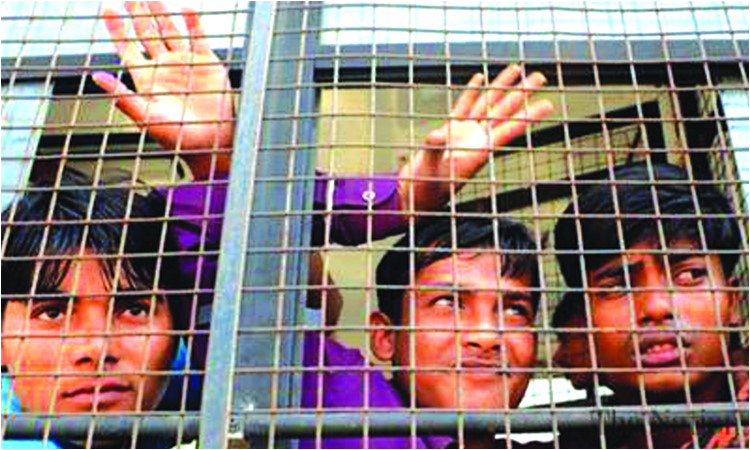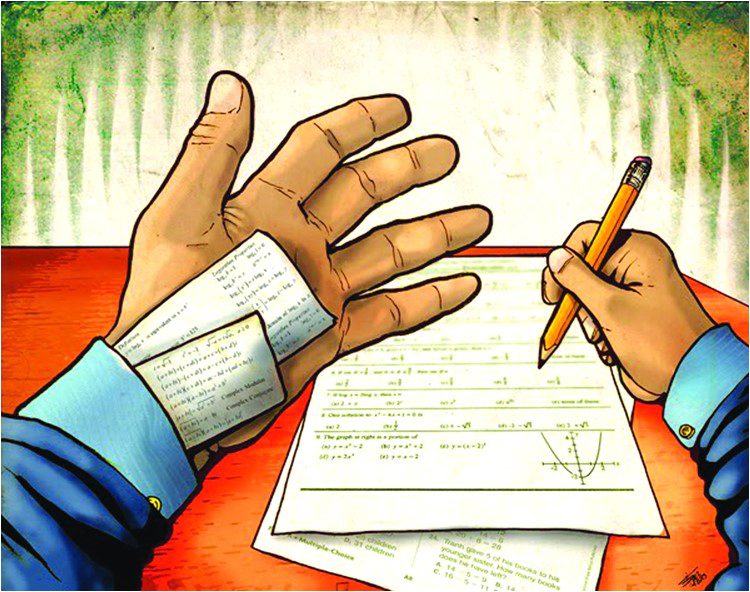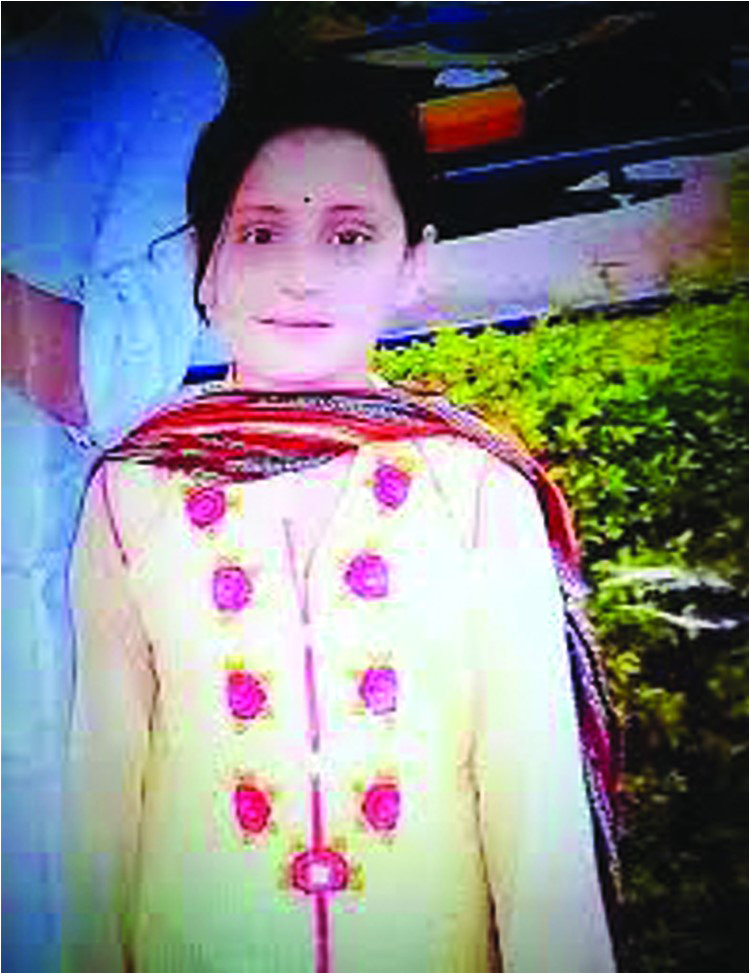
Jobless in Balochistan
Madam,
Although Balochistan is the largest province of Pakistan in terms of land area and is rich with natural resources, the people of the province have no jobs, schools, health facilities, roads or even safe water to drink.

I recently read that along with 1,600 veterinary doctors, 6,500 young engineers are unemployed in Balochistan.
Despite living in poverty, parents of Baloch children spend all their earnings on their children’s education. This is because like all parents, Baloch parents would also like their children to have a bright future. Unfortunately, it seems that their efforts are in vain. I urge the government of Balochistan to create jobs for young graduates through an effective policy and ensure that the residents of this province have all basic necessities.
Waheed Wahid,
Kech.
Pakistanis imprisoned in Iran
Madam,
Iran was the second highest executioner after China in 2018. It has some of the toughest anti-drug laws globally –about 70 percent of all death sentences in the country were for drug-related offences.
There are 189 Pakistani prisoners currently incarcerated in Iran, according to official figures provided by the Ministry of Foreign Affairs. From November 2015 to July 2017, six Pakistanis were executed on drug-related charges in Iran.
In 2017, the Parliament and the Guardians Council of Iran abolished the death penalty for some drug-related crimes. Under the previous law, possessing five kilogrammes of opium or 30 grams of heroin was a capital offence. Under the new law, it was raised to 50 kilogrammes of opium, two kilogrammes of heroin or three kilogrammes of methamphetamine.

As a result of the amendment, many Pakistani prisoners on death row are now eligible to have their sentences converted from death to imprisonment.
The amendment also restricts the death penalty to those convicted of carrying or drawing weapons, acting as ringleader, providing financial support, or using minors below the age of 18 or the mentally ill in a drug crime, and to those previously sentenced to death, life imprisonment, or imprisonment for more than 15 years for related crimes.
These amendments have significant implications since 90 percent of the 5,300 drug convicts in Iran are first-time offenders and in the 20-30 age bracket. This means the amendments to the Anti-Narcotics Law can potentially save more than 4,700 lives. Iranian state media quoted Prosecutor General Abbas Jafari-Dolatabadi as saying in July 2018 that cases of 1,700 prisoners sentenced to death or life imprisonment for drug-related crimes in Tehran have been reviewed, while 1,300 more requests are pending review.
As per the Iranian Supreme Court in January 2018, those sentenced to death for drug-related crimes will have their sentences changed only if their lawyers apply for a review — verdicts will not be changed automatically.
During the Iranian foreign minister’s trip to Pakistan in August 2018, the PTI government raised the issue of seeking information of Pakistanis imprisoned in Iran. The National Commission of Human Rights in Pakistan had earlier sent a letter and follow-up letter to the President of the Iranian Islamic Human Rights Commission over the matter. Following the visit, then information minister Fawad Chaudhry announced in September 2018 that the embassy in Tehran plans to work with the Tehran prosecutor general to identify and support Pakistanis imprisoned there. Since then, however, there has been no word on the progress from the government of Pakistan.
Human Rights Minister Shireen Mazari has said that PM Imran Khan raised the issue of Pakistani prisoners in Iran during his visit to the country in April and requested the release of those held for petty crimes. She added the country would get “good news” in this regard “very soon.”
It is the responsibility of the government to ensure transparency and protect Pakistanis whose sentences can be reviewed by Iranian tribunals, update the number of Pakistanis imprisoned in Iran along with the offences and punishments, ensure effective consular access, and revive the prisoner transfer agreement.
Foreign nationals in Iran face legal barriers due to several procedural hurdles that affect them and reduce the likelihood of getting their sentences commuted. As a result, Pakistanis suffer increased discrimination and are (along with Afghans) more likely to be at the risk of execution and arbitrary, unfair treatment than Iranians.
The government of Pakistan has an obligation under international law and under the Constitution of Pakistan to protect the fundamental rights of its citizens imprisoned aboard. According to official estimates, there are over 11,000 Pakistani citizens languishing in foreign jails.
Ema Anis,
Via e-mail.
Successful cheaters?
Madam
In Balochistan, a result of a student’s matriculation exam determines their future. This means all students have to score good marks in order to have a chance to secure good jobs. If someone wants to join the field of medicine, they have to be the very best of the best.

I do not think that this is a good criteria for choosing students for various fields. I say this because in Balochistan, students at every institution are allowed to cheat and so they all score good marks. Many people even get good jobs by cheating in their exams but they are unable to keep them. This is because these people do not know how to handle their jobs. The people of our province are suffering because of this culture. There are many doctors who cheated their way through medical school and now have no idea how to treat patients. I urge the government to devise policies that ensure only honest, competent and educated people are get important jobs.
Rahmat Shafiq,
Turbat.
Save our daughters
Madam,
Sometimes I cannot tell whether the people of Pakistan are humans or animals. Recently, I read about a rape case in a newspaper. I was shocked to learn about 10-year-old Farishta, who was raped and attacked with acid. Later, her body was dumped in a forest in Islamabad. I was crying by the time I finished reading the report; our daughters are the light of our lives. How could anyone be so callous to a child? This is not the first case of its kind, yet our police departments are always late to take action.

It is shameful that at times our protectors are themselves embroiled in rape cases.
It is my request to human rights authorities and the government of Pakistan to find the rapists and give them exemplary punishment so that nobody thinks of committing a crime again.
Shamsal Manzoor,
Turbat.

